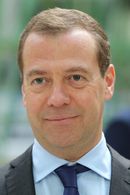Dmitry Anatolyevich Medvedev, a Russian politician of considerable influence, has been serving as the deputy chairman of the Security Council of Russia since 2020. Prior to this appointment, he held the esteemed offices of president of Russia from 2008 to 2012 and prime minister of Russia from 2012 to 2020.
Medvedev's political journey began when he was elected president in the 2008 election, a position he held for a single term. During his presidency, he was regarded as more liberal than his predecessor, Vladimir Putin, who was also appointed prime minister. Medvedev's primary focus as president was the implementation of a wide-ranging modernization program, aimed at transforming Russia's economy and society, and reducing the country's reliance on oil and gas.
A significant achievement during Medvedev's tenure was the signing of the New Start nuclear arms reduction treaty between Russia and the United States. Additionally, Russia emerged victorious in the Russo-Georgian War, and the country recovered from the Great Recession. Medvedev also launched an anti-corruption campaign, although he was later accused of corruption himself.
Following his single term as president, Medvedev was succeeded by Putin, who had him appointed as prime minister. Medvedev served in this capacity until January 2020, when he resigned along with the rest of the government to facilitate Putin's constitutional changes. He was succeeded by Mikhail Mishustin on January 16, 2020. The same day, Putin appointed Medvedev to the newly created office of deputy chairman of the Security Council.
Some analysts viewed Medvedev's presidency as a promising opportunity for positive change, both domestically and in Russia's relations with the West, signaling "the possibility of a new, more liberal period in Russian politics." However, he later adopted increasingly radical positions, which has led to differing opinions about his presidency.

























